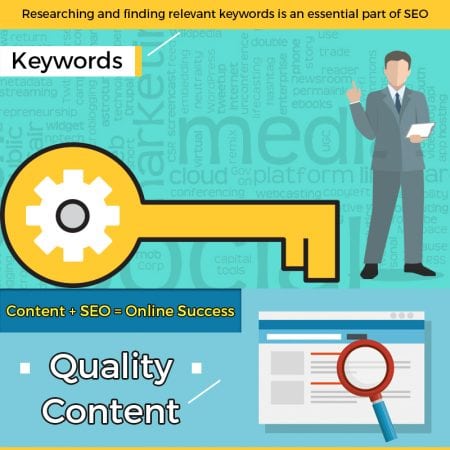 There are two things that have changed the digital marketing world as we know it today: SEO (the technical process of increasing the quality of traffic and attracting a lot of visitors to your website) and content marketing (using valuable and relevant content to drive profitable customers to your website). Together they’ll provide you with brand awareness, website traffic, PPC and lead generation. For good search engine marketing you need good content management because this gives you the words, articles, substance, and keywords. To be successful, both must go hand in hand.
There are two things that have changed the digital marketing world as we know it today: SEO (the technical process of increasing the quality of traffic and attracting a lot of visitors to your website) and content marketing (using valuable and relevant content to drive profitable customers to your website). Together they’ll provide you with brand awareness, website traffic, PPC and lead generation. For good search engine marketing you need good content management because this gives you the words, articles, substance, and keywords. To be successful, both must go hand in hand.
Keywords
Researching and finding relevant keywords is an essential part of SEO. You don’t want to stop there though. Using them correctly and strategically (e.g. don’t stuff a page with keywords to overoptimize it) in your content management will help propel you to the top of the SERPs.
One way to find good keywords is by looking at your top competitors’ websites and Google’s Keyword Planner (a keyword analysis tool) to discover what keywords they’ve chosen to use. You should also search through the AdWords database to find additional long-tail keywords to give your website an extra boost. By embedding these target keywords in your content you’ll be able to rank well and bring more traffic to your website. Always avoid simply stuffing these keywords into your content though because this will backfire on you. Repeating keywords too frequently will have a negative impact on your SEO. This is why you should always follow a reasonable approach and use your main keywords in both your title and the body section.
Quality Content
SEO and content management both require you to be consistent. By creating fresh, unique content you’ll get rapidly indexed and ranked higher than you would if you created low-value, repetitive content. This is because your content’s job is to lure clients in and solve their problems. The best way to do this is by writing influential content that uses important keywords and targets your visitors. These are the factors Google uses to determine and rank your page.
User Experience
SEO is more than content management and the creation of blogs, articles, keywords and linkbacks. You also need to spend some time optimizing your robots.txt, enhancing your metadata, using tags appropriately, and making sure that your the site has no broken links or any error codes (like 404s). By focusing on these technical issues you’ll make sure your web site appeals to search engines so it doesn’t get poorly ranked. Optimizing your URL and making sure the slug (everything after the .com) is concise also helps search engines find your relevant subpages so they can categorize these different parts of your site, making you more successful in the long run.
It’s also important to create a good sitemap for your users and for the robots to crawl. Using the correct tag (e.g. header tags for organizing the content in a useful way that’s easy to understand) provides outstanding and superior indexing and authentic search results. This benefits your visitors because they can recognize the page’s information before even clicking on it. Header tags (H1 – H6) are also important as they help your visitors differentiate between headings and subheadings, making sure that it’s well-organized for them.
Traffic
Linking also plays a major role, especially when you do so with high-domain authority sites (e.g. .edu, .org). Another great way to do this is by creating expert content.
Content and search engine marketing play a critical role in your company’s success. Local SEO Company understands how this can turn into a full-time job though. With this in mind, they invite you to contact them so you can become their next success story.
